There is no denying Cheryl McCall was one of the greatest journalists of her time. She was a regular contributor to several major publications including LIFE, Time, and People Magazine. She interviewed icons of the era including Willie Nelson, Maya Angelou, and Miles Davis, many of whom were her dear friends. And one of her greatest friends who is mentioned throughout Chery’s entries was Edie Vonnegut, Kurt Vonnegut’s daughter. The one thing we’ve learned about Cheryl is that she was never intimidated by the people she interviewed, even if that person had three feet of height on her. Well, we also know that she could not stand Reggie Jackson or Barbara Walters. She was never afraid to say what was on her mind, which is what makes the exploration of her writings so very captivating.
Her most famous body of work was a documentary she produced with American photojournalist Mary Ellen Mark and director Martin Bell. Streetwise followed the stories of several homeless youths in Seattle and their tumultuous journey surviving on the streets. The documentary was nominated for an Academy Award for Best Documentary Feature in 1985 and won the Special Jury Prize for Documentary at Sundance Film Festival. It also inspired the beginning of Cheryl’s post-journalism career, pursuing her law degree in order to help vulnerable youth at the mercy of the legal system.
As we worked through the gallery of images and excerpts her daughter Jessie has been curating over the years, it was hard to ignore the lasting impact this incredible journalist left on the world. Shortly after her mother’s passing in 2005, dozens of reporters wrote their own tribute to one of the greatest journalists to ever live.
On May 11, 2005, Cable Neuhaus of The Huffington Post writes:
“I suspect that Cheryl’s daughter Jessie will hear from many of her mom’s old pals in the world of big-time media. They will tell her about the sassy reporter who helped put People on the map when plenty of critics thought it didn’t have a chance in hell. They will doubtless share tales of the woman who, to everyone’s surprise, turned to the practice of law late in life and settled in an out-of-the-way California community — but yet, all these years later, was still freqeuntly talked about among her former magazine colleagues in Manhattan and elsewhere. How could Jessie do anything but savor those zesty war stories about her mom?”
Though we’re showcasing Cheryl’s accomplishments from her many assignments in this particular gallery, we included Jessie’s own writing (annotated with ‘JM’ in green italics) as a second voice in the overall narrative. In getting to know Cheryl as a journalist, we also get the chance to understand Jessie as a photographer and what it’s like to be the daughter of Felicity Buckwinder.
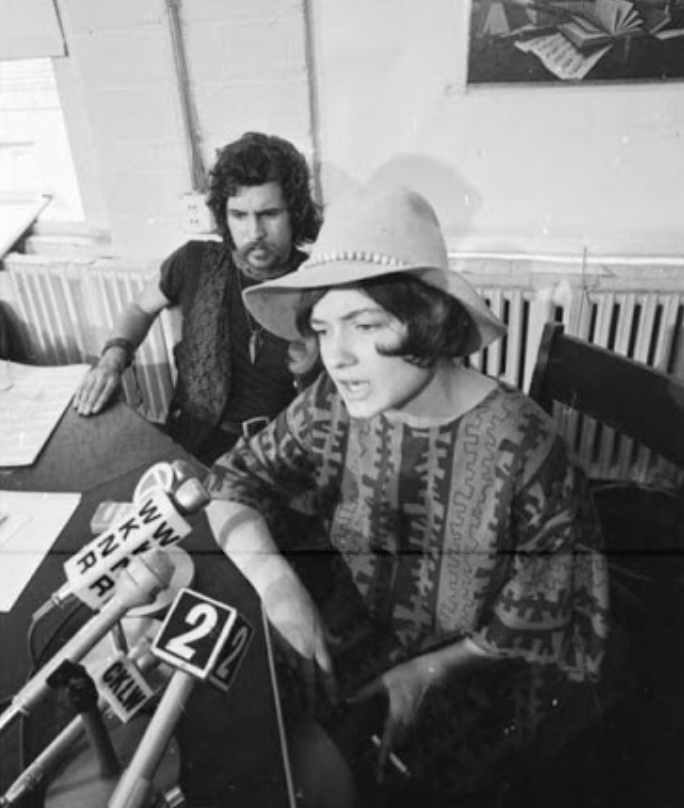
Editor’s Note: Cheryl’s first known assignment as a journalist was being appointed the first female editor of The South End newspaper at Wayne State University in Detroit. Cheryl was 19 years old and a staunch activist against the Vietnam War. Apparently, Cheryl kept a letter written by J. Edgar Hoover when he was FBI Director in 1970 that lists her as a threat to national security.
After further research, I discovered the man next to Cheryl is Art Johnston, who was the first appointed editor of the revamped newspaper. He was responsible for changing the name from the Wayne State Daily Collegian. The paper was suspended in 1969 by the head of the university.
A copy of the 1969 Press Photo of Cheryl McCall and Art Johnston was listed for sale on WorthPoint.
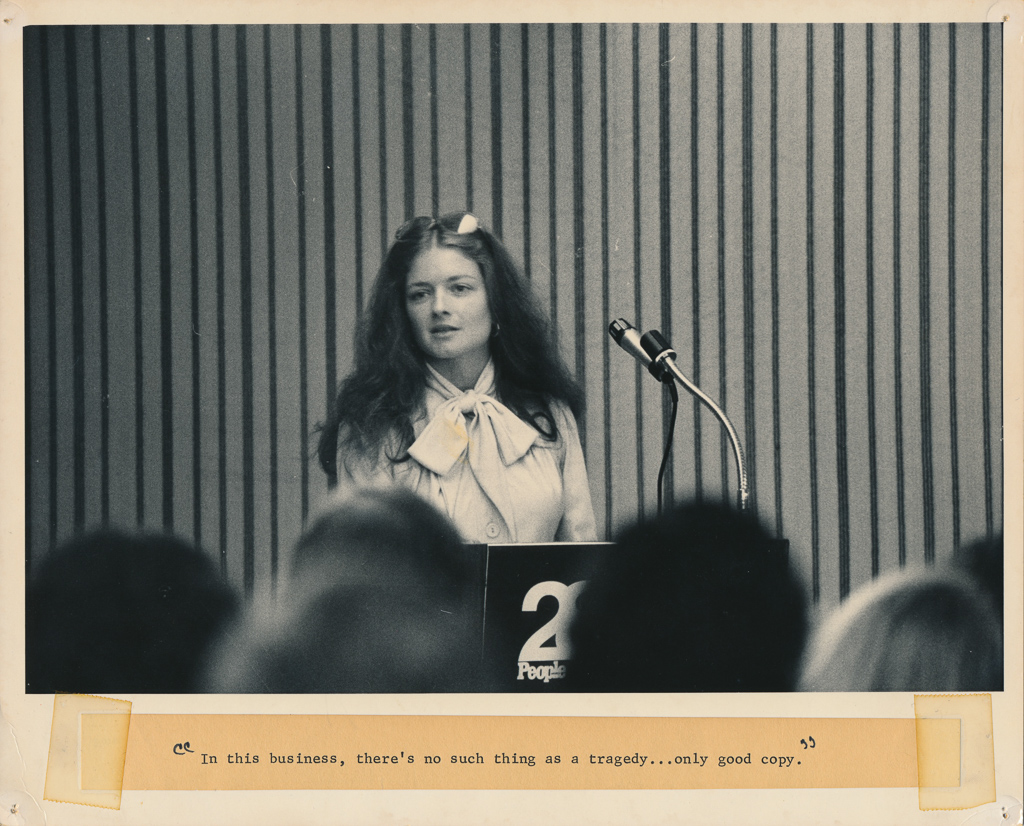
In this business, there’s no such thing as a tragedy… Only good copy.
JM: Honest? Callous? Naive?
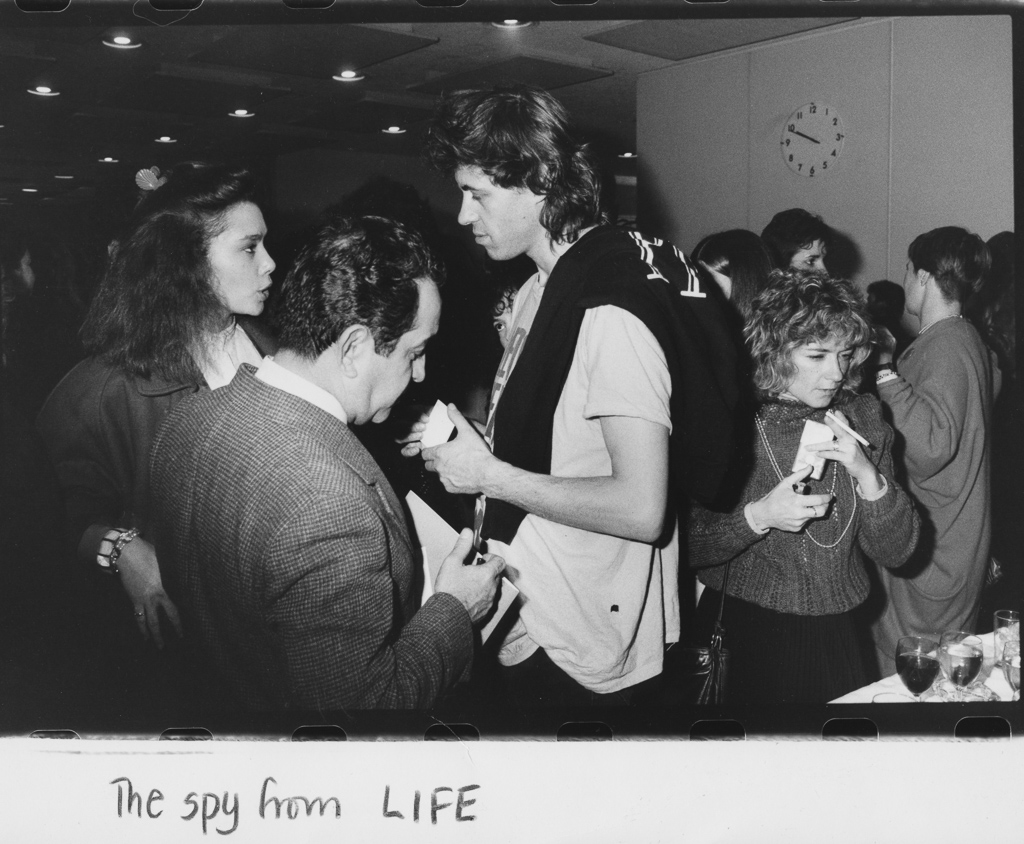
April 29, 1981
Oh, one final note. Norman Mailer wrote me a letter apologizing for maligning me in “The Executioner’s Song” and agreed to change all future editions of the book to reflect the facts. One small victory. For truth and me.
JM: After some quick investigation I have found that she wrote a story for People Magazine on Gary Gilmore titled “Eight Women Caught in Gary Gilmore’s Tangled Web Await His Execution.” I believe Mailer referenced her article in his book about Gilmore. I love investigating her entries!
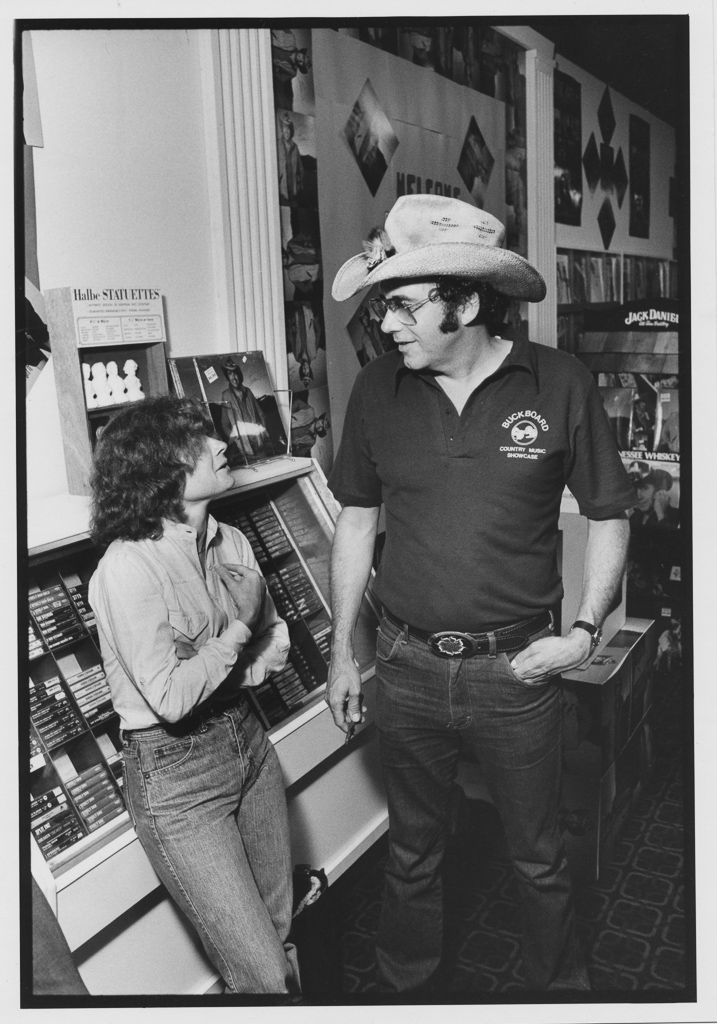
August 1982
Editor’s Note: This struck me as one of my favorite images from the bunch. Something about this man (Bobby Bare) hovering over Cheryl and her appearing to be as relaxed as possible in his presence. I imagine this is how most of her interviews went. A casual conversation between friends that evolved into a defining article in People or Life magazine.
There wasn’t too much context as far as Cheryl’s relationship with Bobby. In Jessie’s Instagram post from February 2016, she writes, “I don’t know much about this fellow, but I did happen to inherit every record he ever made.”
In doing more research on another image, I was able to find an article archived on People.com written by Cheryl in 1982 after spending time with Bobby on the road. My favorite excerpt in particular:
“As Bare opens a fresh beer, he stares out the tinted window. The blackness of the night reflects back a slightly worn, middle-aged country singer with an open-jawed rattlesnake head striking from his hatband. It’s an image he can live with. Pondering the grind and the countless times he’s sung the same songs, Bare insists he still enjoys his job because of a promise he made to himself when he started. “I never let anybody coerce me into cutting a song I don’t like,” he drawls. “Otherwise it might be a monster hit, and I’d have to sing it for the rest of my life.”
Perhaps this is why Cheryl looks so relaxed around Bobby. They share similar attitudes on their work and understand what it means to live constantly on the road. Though being a journalist required her, at times, to write about people she wasn’t too fond of, she was best known for the incredible relationships she made with several others. The quality of her writing and the intention of her work was meant to bring the reader into the experiences. As if you were the one on the receiving end of Bobby Bare’s thoughts, leaning against a shelf with your arms gently folded in front of you.
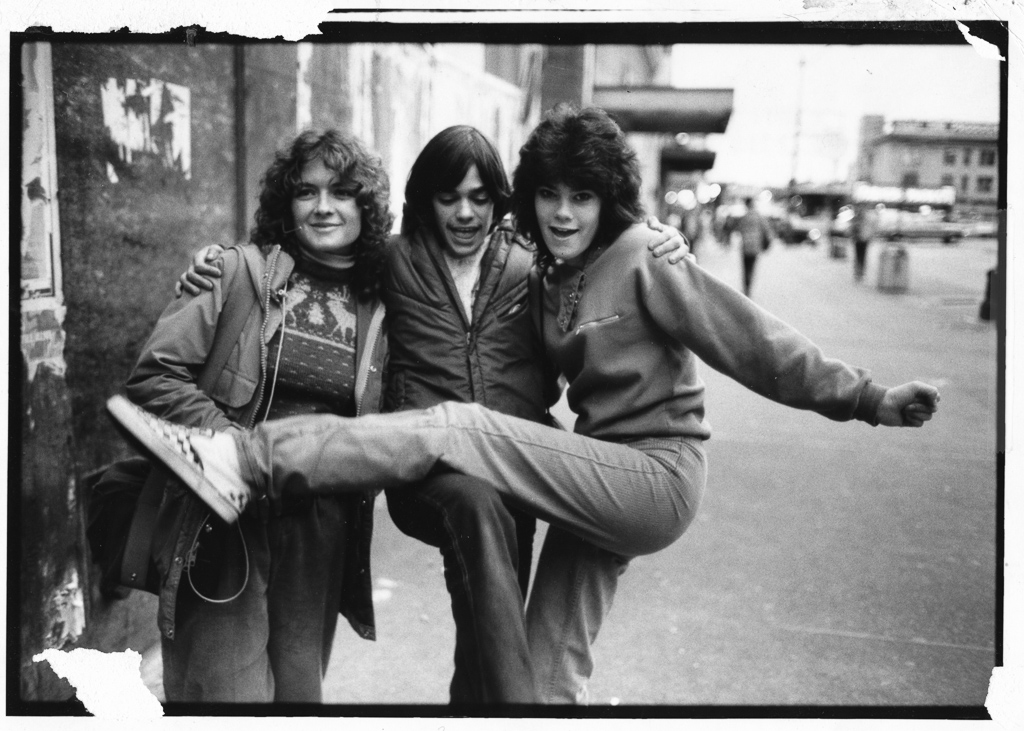
Streetwise
JM: Mom during the filming of the documentary Streetwise that she produced with Mary Ellen Mark and Martin Bell. The film follows a handful of kids who have been forced to survive on the streets of Seattle using prostitution, panhandling, and theft. Photo taken by Mary Ellen Mark.
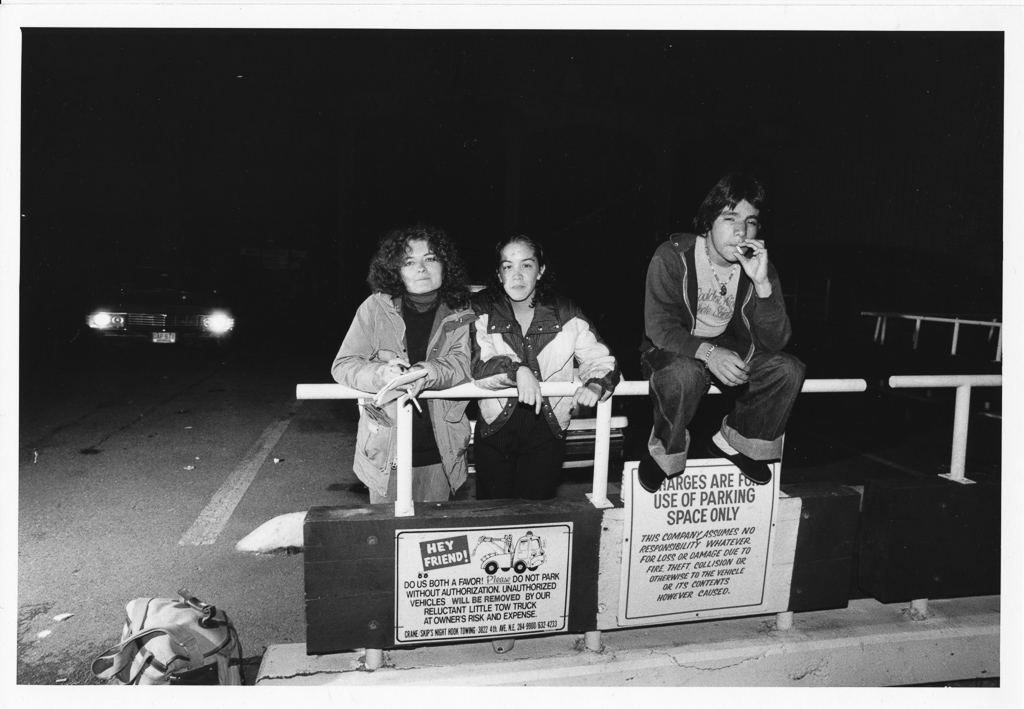
May 15, 1983 | New York City
I dream of the street kids every night, gang wars and violence mostly, and wake up every morning with thoughts of them first. It will be a long time before I can put this experience and story behind me. I was so involved, so consumed, and so exhausted while in Seattle but I couldn’t write there. For three solid, action-packed weeks, we kept a killing pace because the story really demanded it. We were following as many as 52 different characters—most of whom had the artificial energy of MDA—as well as trying to touch base with all the various officials, shelters, missions, and clinics that the story required.
I have good, tragic interviews (but could use about a dozen more if time permitted) and Mary Ellen has strong photos: anger, hurt, loneliness, vulnerability, and other emotions; fights, shooting up, the monastery scene; Tiny at home, at the clinic, on the streets; Mike and Rat in their abandoned building, eating in the Gospel Mission, dumpster diving, panhandling, doing their laundry, and in an alley with a Colt 45; there are many more mood and environment shots. She has 180 contact sheets (6,480 photos) and so far they’ve edited 100 good photos from them.
Now that her job is done, mine begins. Frankly, I’m overwhelmed and a bit frightened by the task ahead. I don’t know how to do justice to the story—where will I find the words?
Editor’s Note: In doing more research on Streetwise, we were able to find a rare interview with Cheryl McCall and Stephen Schaefer on YouTube.
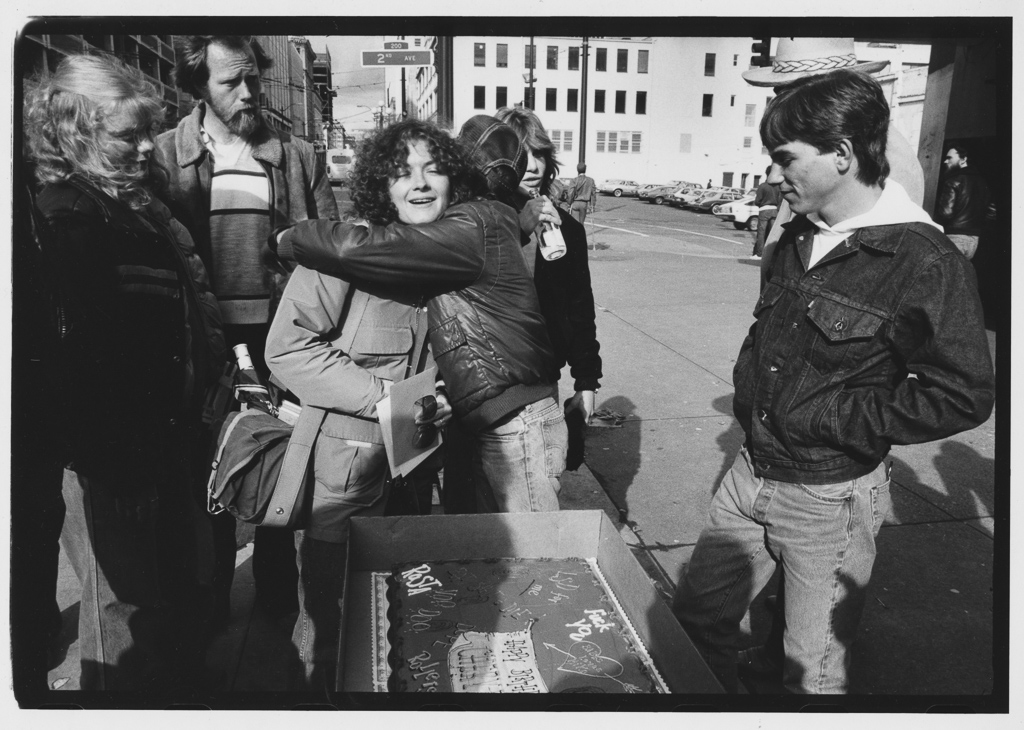
May 15, 1983 | Continued
My 33rd birthday is one, was one, that I’ll not soon forget. Part of it was spent in the parking lot of the monastery with a crowd of hopped up, drunk kids and then in a tiny room in the Capitol Hill District crammed with eight people watching two teenagers shoot up MDA. We were out until 5 a.m. Then I slept for a few hours, transcribed tapes for a few hours, and went down to The Block.
Mary Ellen and her assistant, Stephan Begleiter, and the street kids had a party for me on the street—replete with streamers, balloons, and a huge sheet cake that was a reproduction of The Wall. It was emblazoned with wall slogans like: eat shit and die; fuck you and die; sex, drugs and rock ‘n’ roll; LSD; Rasta Man; conform or be cast out; and so forth. A memorable cake and a memorable occasion.
JM: I felt lucky to have found this entry. I found the image months ago and had no idea what was going on it in. Now, paired with all these words, I understand. Exactly why I love this project so much!
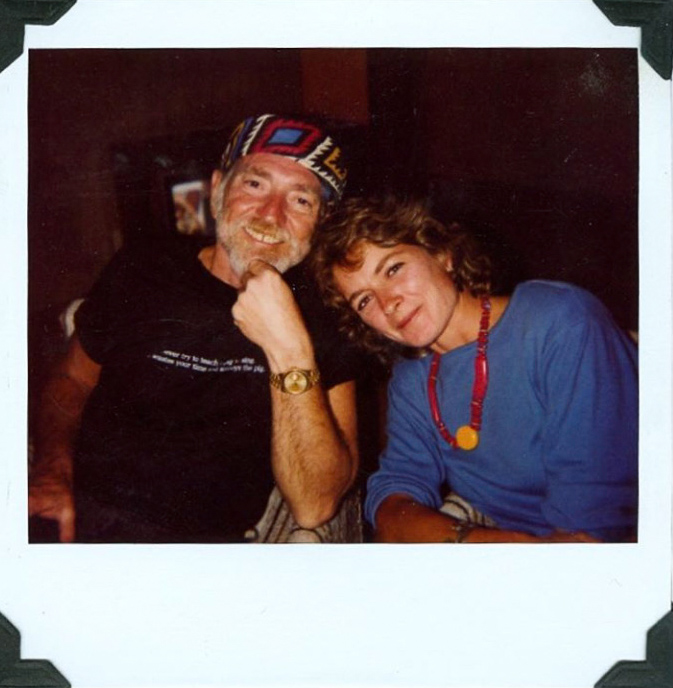
July 27, 1983 | Nashville, Tennessee
The meeting with KCTS in Seattle proved far more productive than I expected. By the time I left, they agreed on the content and concept of the sum, agreed to hire Martin and me and agreed to provide post-production facilities if we somehow raised the money ourselves to shoot the film. Which seemed doubtful. But when I got back to New York, I put out feelers to Connie Nelson, Robert Redford, Speed and Stolley to see if funds or help might come from those sources. Within a week, Connie came through with an $80,000 commitment from Willie. And Stolley came through with a paid leave of absence from LIFE so that I don’t have to take a fee during the shoot.
I want to put Willie and Connie on the credits as executive producers. Willie may also do an introduction and some music for the project which makes it more appealing all the way around. I still can’t believe that Willie is backing us to the tune of $80,000. It shows a lot of concern for the kids and a lot of faith in me being able to pull it off.
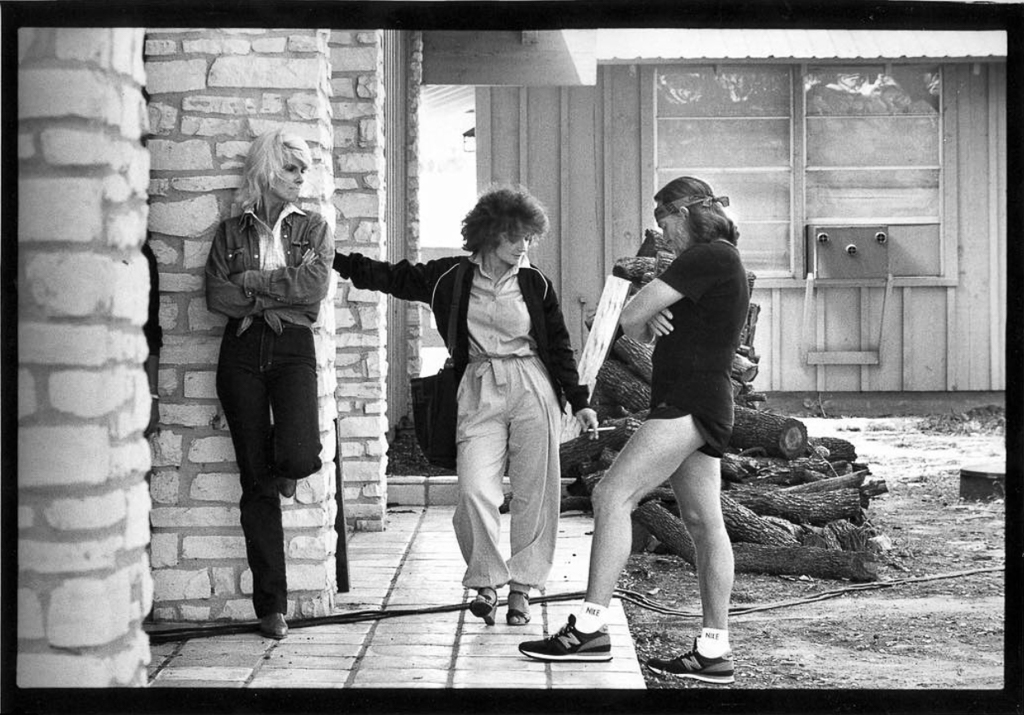
August 26, 1983 | Colorado
JM: Serendipity has surrounded me for this past month on the road. It’s been a series of occasions where I’m constantly surprised by fortunate timing, beautiful encounters, and life generally just being in “the flow.”
I have toted one of mom’s journals around with me from city to city—and went out of my way, spending $50 at 1 in the morning to get an Uber back to the venue in St. Louis when I left it in our green room—not trusting that the venue promoter wouldn’t post it. Now on our last day, on our long 11-hour van ride home, I open it to where I left off and I find an incredible entry far too long to post here and interestingly congruent with my life.
On Sunday night I got to photograph some amazing bands at Red Rocks. It was my first time there and I was elated to be able to experience it with people I admire and adore. Mom’s entry begins on August 20, 1983, where she describes her torment over being the sole producer for Streetwise and how arduous it’s been dealing with one man in particular named Arthur Cohn. She describes his jealousy around her boyfriend David, calling her all hours of the night to threatening only to fund the movie if there were no other men in her life . . .
. . . I went to the concert at Red Rocks but was very upset. When Connie pulled up, I took her aside and let her read his message and then I started to cry. I told her about his jealousy and personal obsession with me and why I felt that was behind all his bullshit. Then I returned with David and the band to the hotel and waited for Cohn to call. When he called, I couldn’t believe my ears. He refused to discuss the contract at all. He said that now that I couldn’t do the film and was on a leave of absence and obviously broke, he wanted to take care of me financially. I told him I’d never take a cent from him, that I have too much pride.
Then Connie called and said she told Willie and he’d said to fuck Cohn—but not literally. They asked me to come out to the house on Tuesday to talk about what we could do.
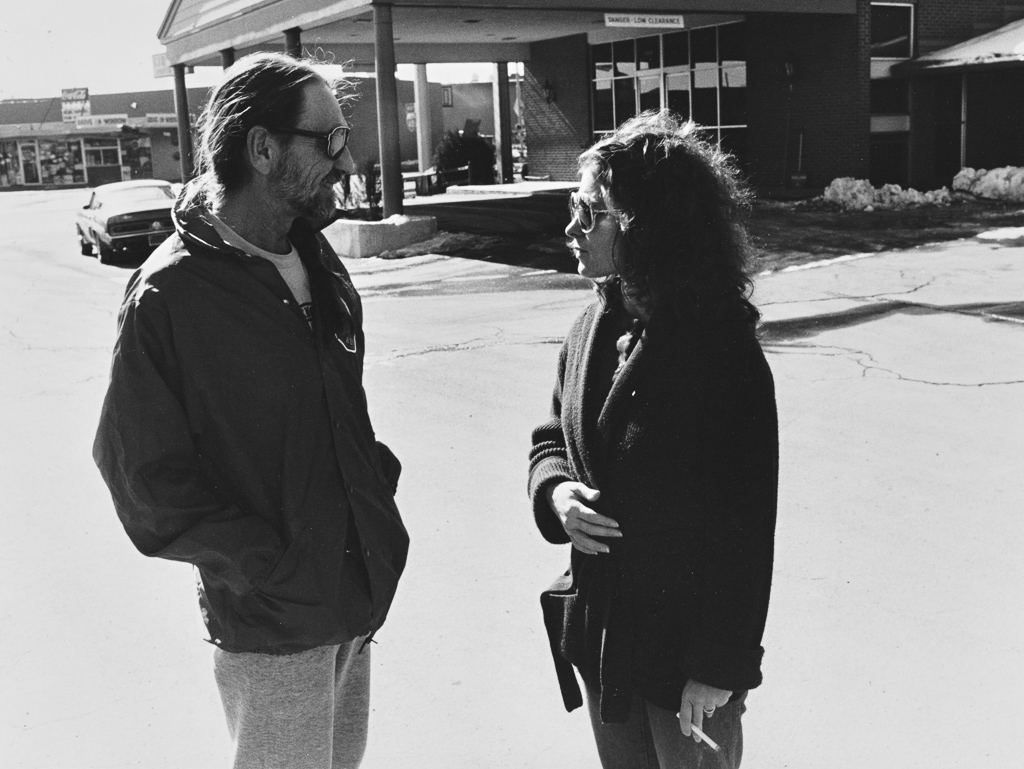
August 26, 1983 | Continued
David and I went out to Willie’s with Bare and Jeannie. We spent several hours walking around and eating but the subject (Streetwise) never came up. But just as we were going to leave, Connie and Willie pulled me into a corner and talked to me about it. Willie said he’d put up $150,000 himself so that we don’t have to go to anyone else for money and we have total creative control over the film. He said Cohn was “bad karma and we didn’t need him.” Willie said to “just go on to Seattle and get started.” He’d “do a couple of extra concerts if he had to.” I was stunned.
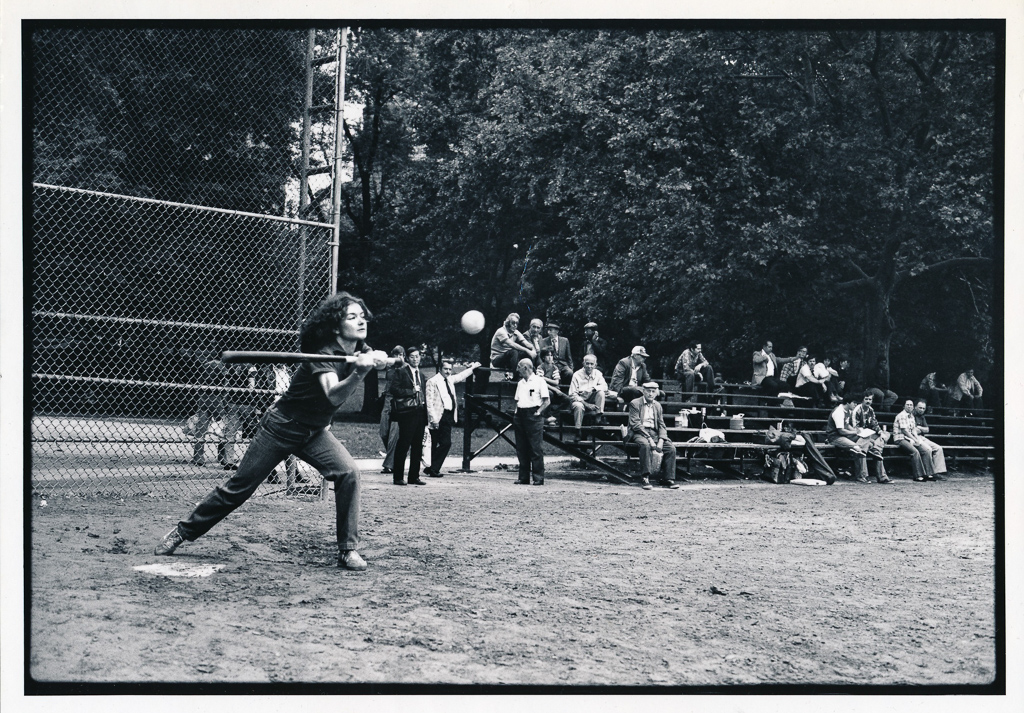
January 15, 1984 | New York City
I had the distinct displeasure of spending Tuesday afternoon with Reggie Jackson, the supreme hot dog of all time who was so ostentatious about his wealth and what he spends that I became embarrassed for him. He insisted on prancing around with no shirt and his pants undone during a photo session for an ad—totally gratuitously and for some kind of effect. He showed me a couple dozen of his cars and lectured me on smoking. I’m forbidden to smoke in his presence; like he’s God and I’m his subject. It’s going to be a miserable assignment, starting at the end of January.
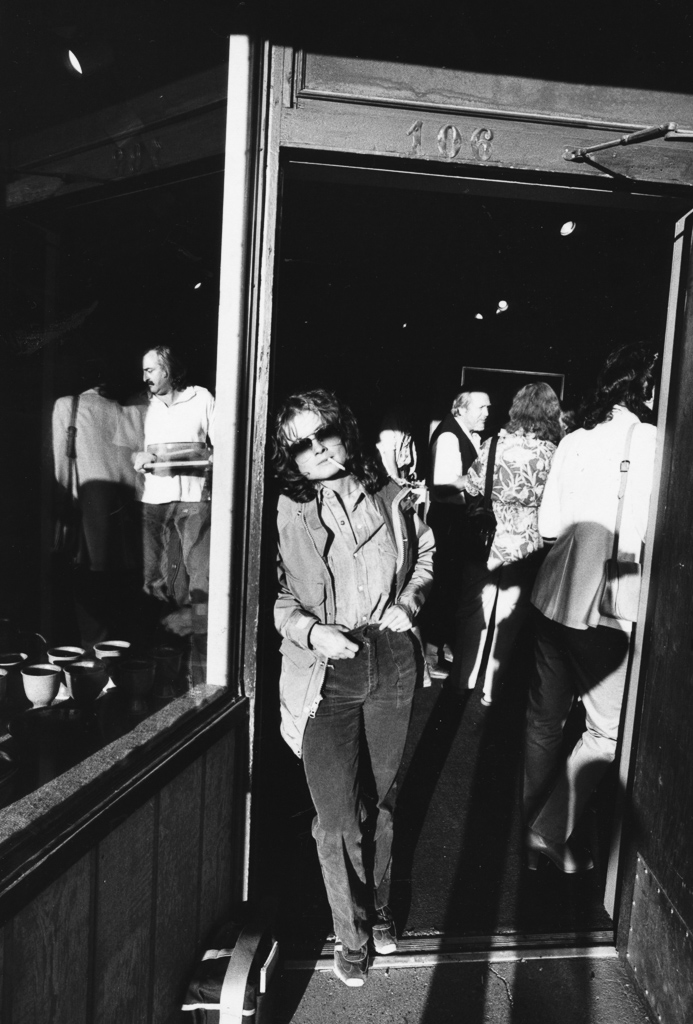
February 8, 1984 | Carmel, California
Yet another stop in the continuing saga of the Reggie Jackson story. I’ve never been so frustrated and disgusted on a story in my life.
We’ve been his entourage for 10 or so days now, dragged by the nose to the most boring places. He spent two days in Pomona at a drag race he was hosting for ABC and I swear I’d rather sit in a burn ward for two days than endure that noise and fumes and redneck crowd. I almost threw myself in front of a car to get away from there.
And Reggie, who has no idea of what we need for photos, is directing the story according to his concept. We are total hostages to his whim and I’m ready to shoot the guy. I really dislike him. He’s the most materialistic, money-conscious, egocentric and uptight person I’ve ever encountered as a story subject.
I hate him more than Barbara Walters.
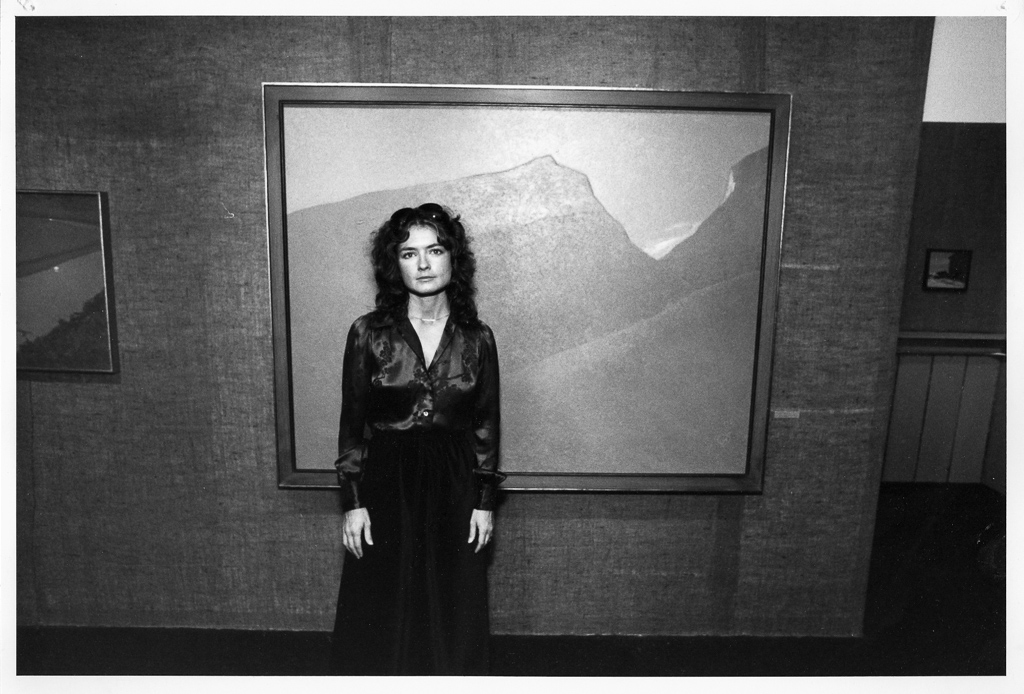
June 10, 1984 | Minneapolis to Seattle
I’m on a plane now, en route to Seattle, my nemesis city, to further plumb the dark depths of sexual abuse. I did quite a few interviews in Minneapolis—with offenders, mothers of victims, children, a woman offender, and a therapist—and never had a minute to myself.
I should mention that one of my worst nightmares occurred in Minneapolis only a few hours after I got off the plane. I was interviewing a sex offender at Alpha House, a residential treatment program, when a tornado warning sounded. I was herded into a dark, airless basement with 30 sex offenders—some severe depraved rapists among them—locked down there without any staff people for an hour and a half.
On the rational level, I didn’t think anything would happen, but subconsciously I was in fear. That night I had a very direct nightmare from the experience and woke with a start at 5 a.m. in pure terror. My heart pounding and eyes wide open in fear.
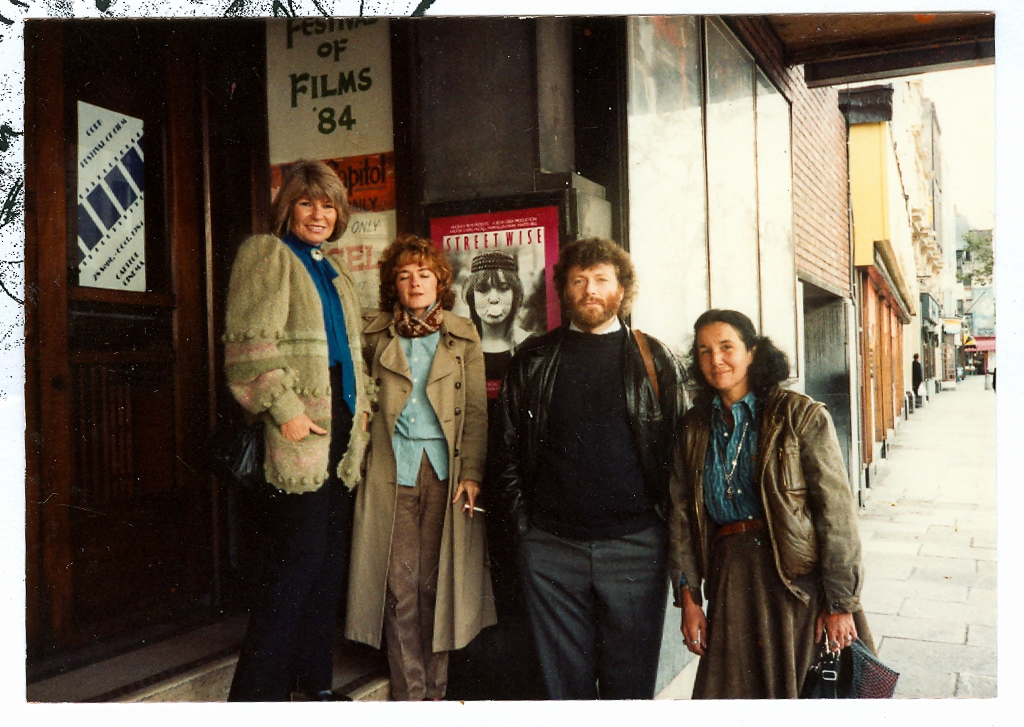
October 28, 1984 | Seattle, WA
The film is doing good business at the Movie House, one of Seven Gables’ theaters. Rick and I drove up there last night to take pictures of Streetwise on the marquee and there was Mary Ellen and Saleh, counting tickets. Tiny and Kim were inside with Martin watching the film yet again. It felt like a real triumph for me as a whole. We managed to finish the film, show it to the kids at the Orion Center on Thursday, and then premiere it on Friday. All of my friends were there except for Connie Butler because her father died on Thursday morning and she had to fly to Chicago for his funeral.
JM (12/08/16): I only brought one journal with me while I was in California for the last 6 weeks. I’d pick it up and read from one entry to the next, taking little Post-it notes to mark each page with a theme so I can reference them later. The constant tone of 1983 & ’84 was the endless torment mom and the production went through trying to get the film produced. From losing financing to falling out with Martin Bell and Mary Ellen to the initial struggle to get any film festival to show the documentary. This entry marks the moment mom got to feel a sense of accomplishment that her relentless perseverance was not in vain.
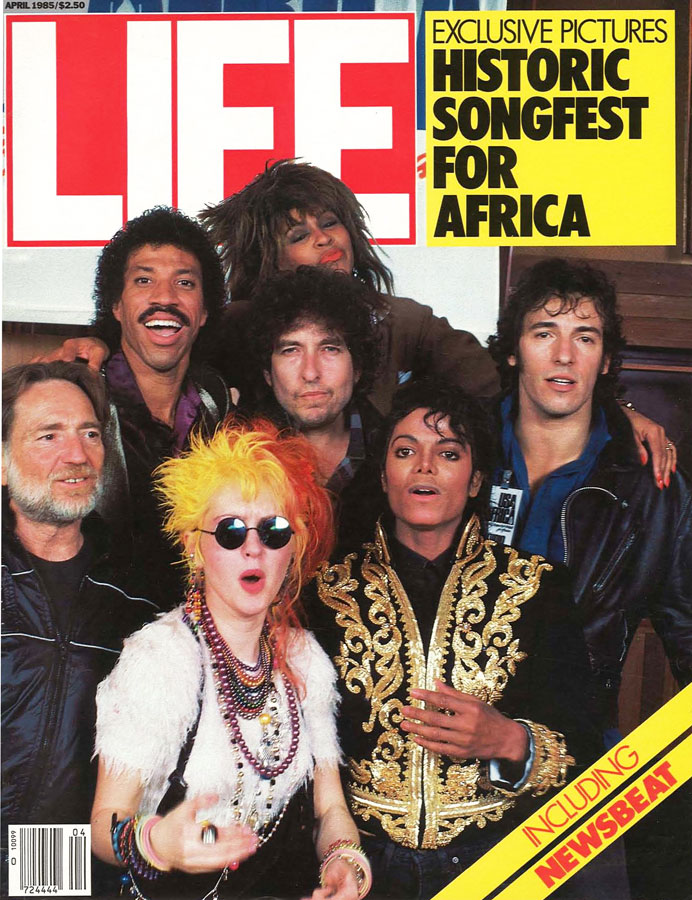
1985 | We Are the World
Editor’s Note: Though it was only a slight mention, I discovered Cheryl was one of the reporters on set the week of the famous 1985 recording of We Are the World. Freelance journalist, David Breskin, was also on location. You can read a portion of the article titled Historic Songfest: A Revel with a Cause on his website, and the book is available on Amazon.
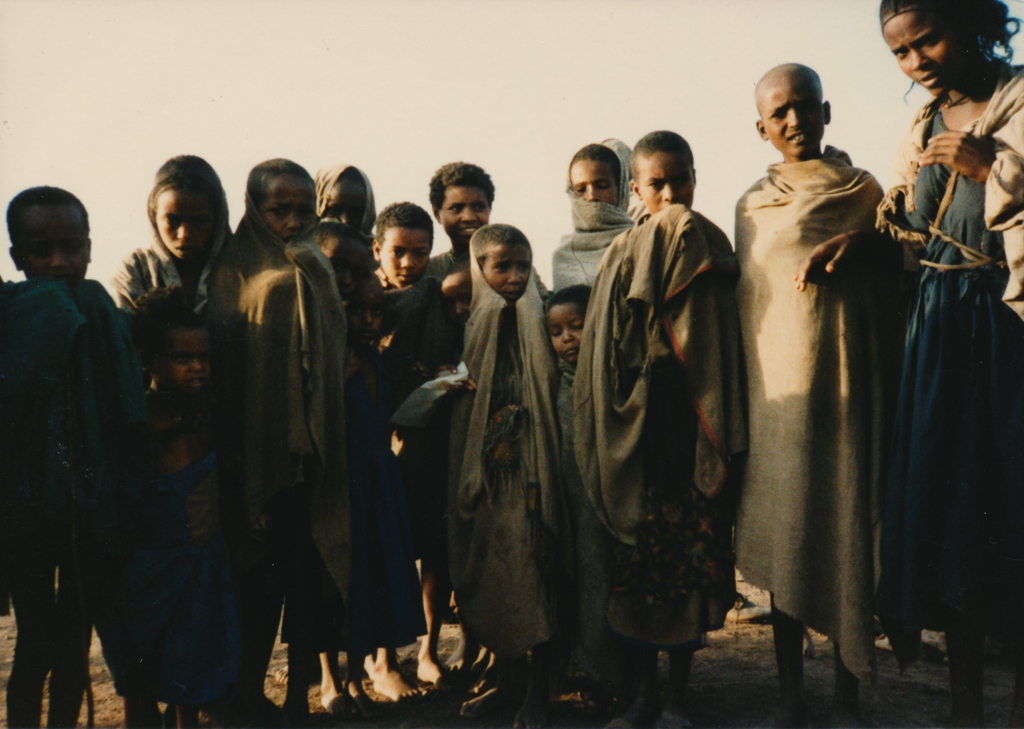
February 13, 1985 | Alamata, Ethiopia
So we walked through the camp here, hundreds of children with every imaginable disease rushed up to us, calling “sister, sister” and touching us. Each child grabs your hand and clings to every finger. I had them wrapped around my legs, waist, arms, wrists, and fingers, smiling up at me, asking my name, and I couldn’t shake them off. I wouldn’t shake them off. Mary Ellen had to in order to work, but I felt it would be unkind.
I was told to wash twice when I returned to the campground here where the World Vision staff is bivouacked in about 30 tiny rooms, two apiece. The sounds here are of human voices, thousands upon thousands, raised in the distance. A constant din that creates a backdrop of noise. Where is the silence I’ve read so much about?
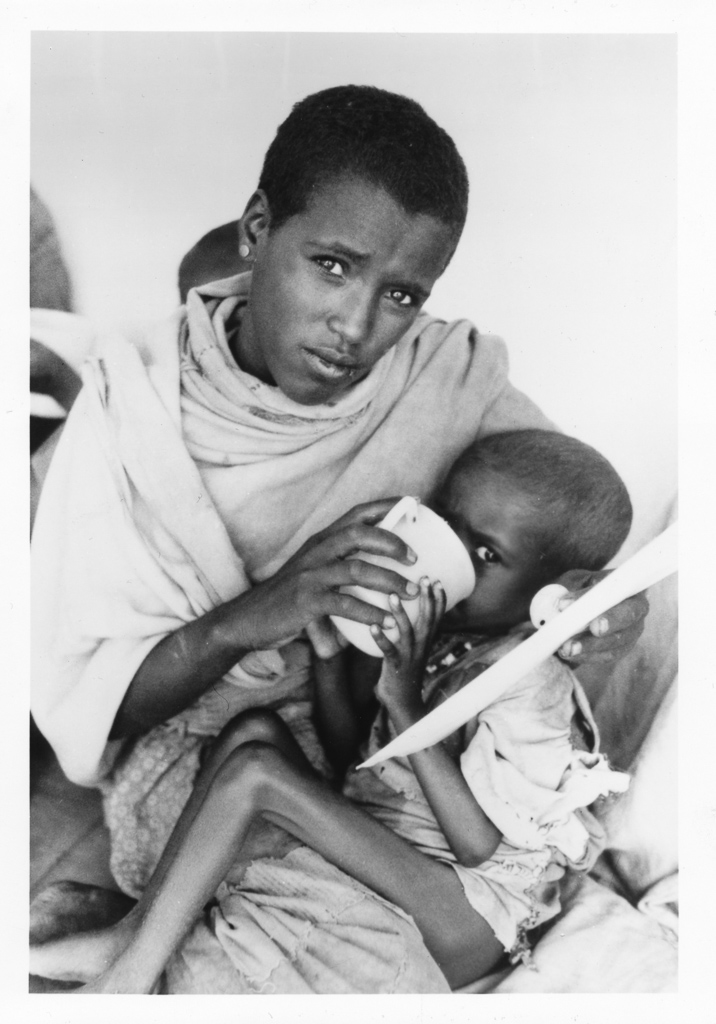
February 16, 1985 | Karem, Ethiopia
I’m sitting on the hillside overlooking part of Gondo camp, with thatch huts and peaked tin tents on the horizon and multitudes of people constantly on the move. It seems so biblical and ancient, not of 1985. The poverty here is not within the scope of Americans or Europeans, I think, and not even of the Third World. And yet there is a fierce, stark beauty if you lift your eyes from the sea of human misery swirling around you at ground level.
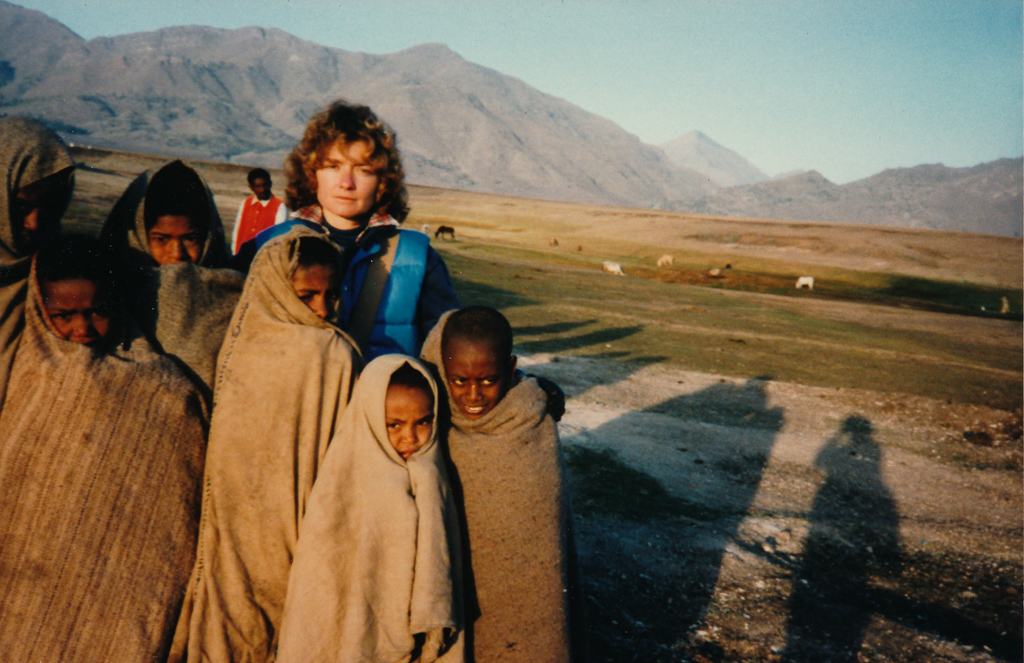
February 17, 1985 | Karem, Ethiopia
The children here are adorable and so friendly. They follow me everywhere, calling me the Amharic word for “foreigner,” which sounds like for-an-gee. Hundreds stand on the hillside chanting until I wave and then they all clap. I feel like a politician. Then they crowd around and put out their hands to shake. I must shake a thousand hands a day here. I have learned the words to say “I’m not a doctor” and “I don’t have a pen” to give them—”or a ball or chewing gum.” I wish I did. It would take so little to make them happy.
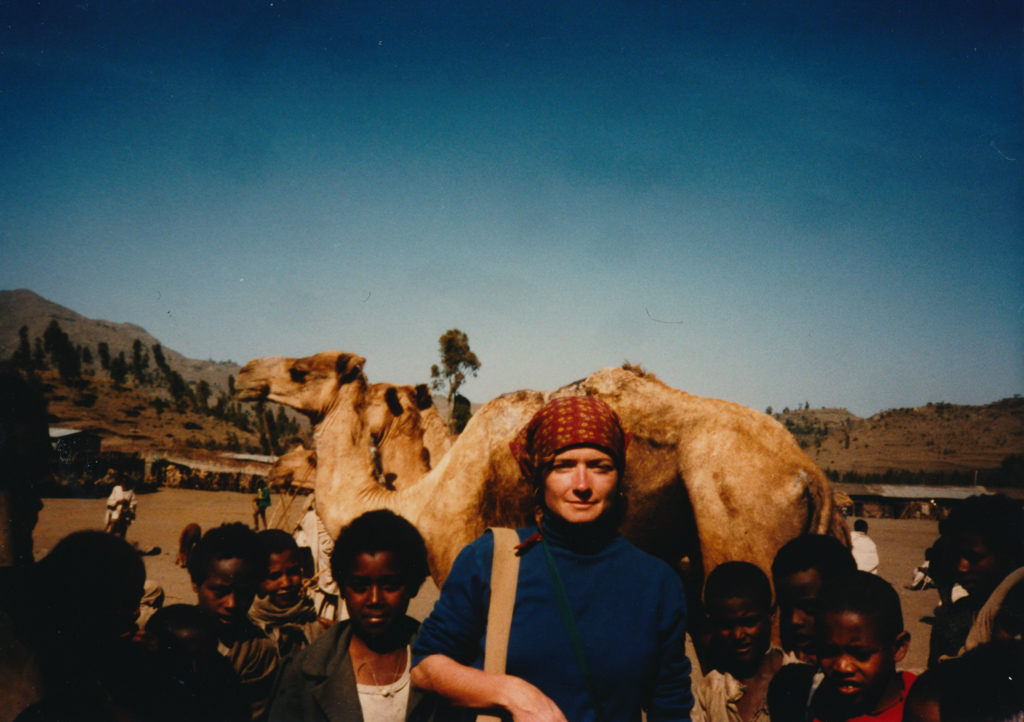
February 20, 1985 | Karem, Ethiopia
I had an interesting talk with Askade over tea today. She asked questions about America and was quite surprised by the answers. She asked what my criteria of a good journalist was and I said sensitivity, discipline, use of words, and a pursuit of the truth. She was surprised by the latter. She asked if you could really write the truth in America, what you actually saw and knew to be true? I said of course. And you are not punished? Never, I said. I explained freedom of the press and freedom of speech to her—very alien concepts. She was also shocked to learn that people can travel anywhere they want in America without travel permits. “ You are very lucky,” she said, quite sincerely. I told her that this was the only country I had ever been in that required permits and government “guides” to travel anywhere. I may be a bad influence on her. The lights are out and the candle is getting low, so I’m going to sleep.
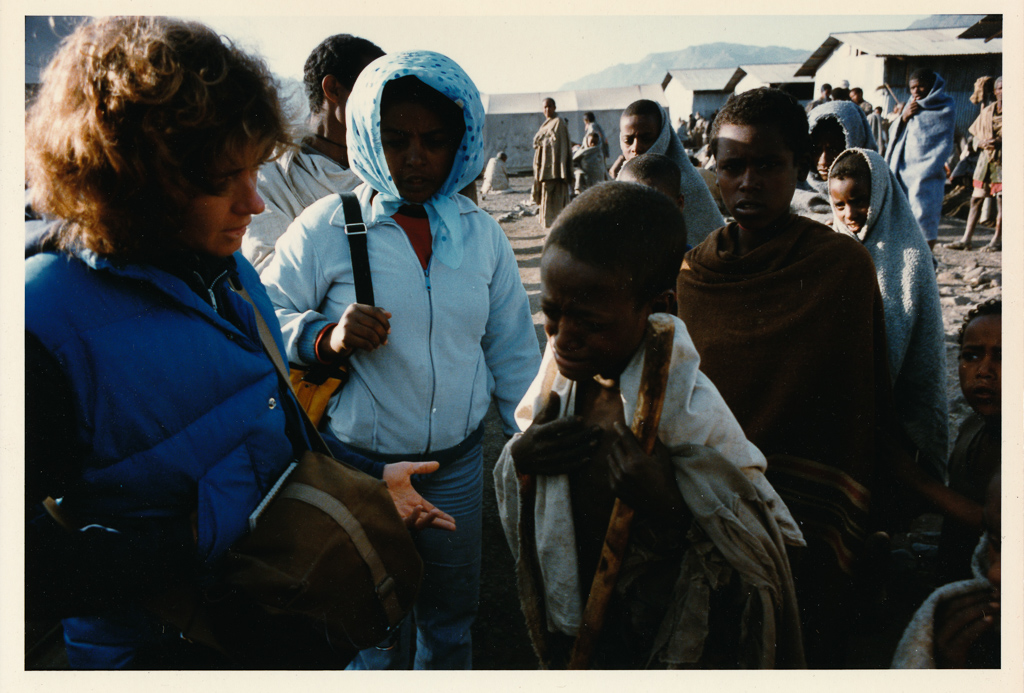
February 25, 1985 | Karem, Ethiopia
Perhaps the worst sight of the day for me was just after this.
Kathy from Save the Children had gathered about 20 patients from her wards outside in a circle to give them their kita bread for the day. The people from the “open field” silently gathered behind them in a concentric circle, sitting on the ground, and watched the food being distributed with tears streaming down their faces. Not begging, not making a sound. They were given nothing.
It was one of the most inhumane acts I’ve ever witnessed. It is not the fault of those distributing the food. The government forbids them to give these people anything because they want to starve and freeze them into accepting resettlement in the south. If Save the Children or MSF went against the gov’t orders, the agencies would be shut down.
JM: I have been reading through pages of heart-wrenching entries of the time mom spent in Ethiopia writing this article. I can’t help but reflect on the current state of the world and how not much has changed when it comes to bureaucracies and lack of relief for those in need. I can’t be certain, but I imagine this photo was snapped by Mary Ellen Mark.
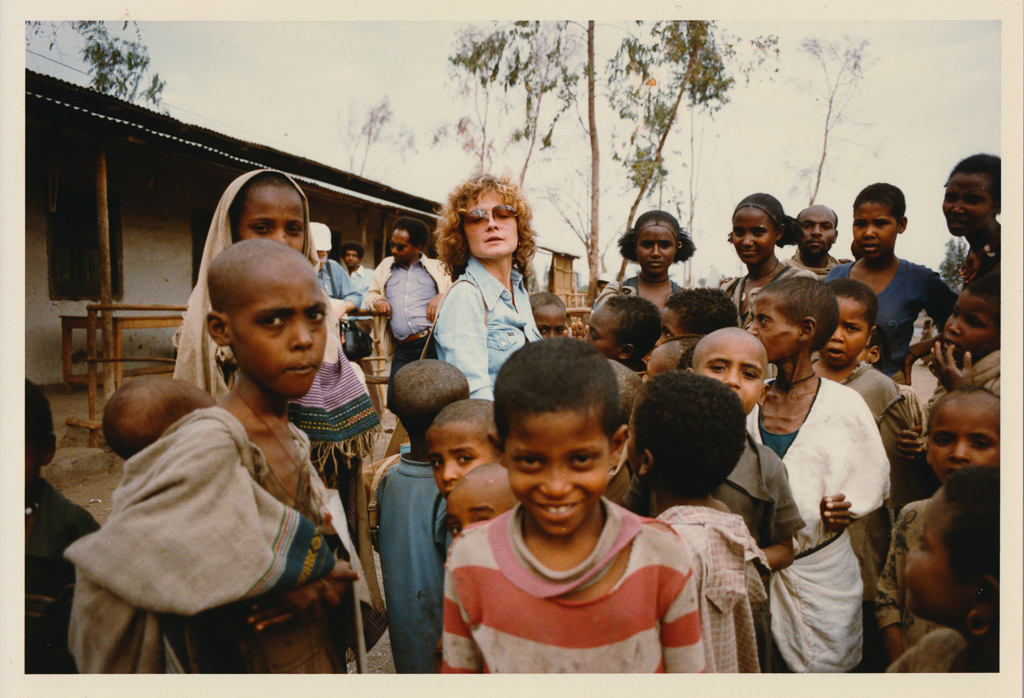
February 26, 1985 | Addis, Ababa
Then we all gathered in the yard of Jose’s hotel for a feast and farewell party. Mary Ellen and I donated the last of our food and a bottle of wine. I brought the Bruce Springsteen tape and a couple of others, and we danced and had fun. Mary Ellen shot a few rolls, then we were done.
I felt sad to be leaving them because I’ve become very fond of them individually and as a group. I have all their addresses, and they have ours. The feeling is really mutual I think because they all said they would miss us and enjoyed having us with them. This morning I hated to say goodbye. I can’t believe I won’t see them anymore.
I suppose I feel this way because it was an intense experience we shared, probably the most intense of our lives, and the bonding was special. The older and more experienced I’ve become as a journalist, the more professional distance I have between me and my subjects, usually. But this story has put me back at square one, too involved to just walk away. I’ve seriously thought, at night in my sleeping bag, about joining MSF as a logistician. Who knows, maybe this too will pass.
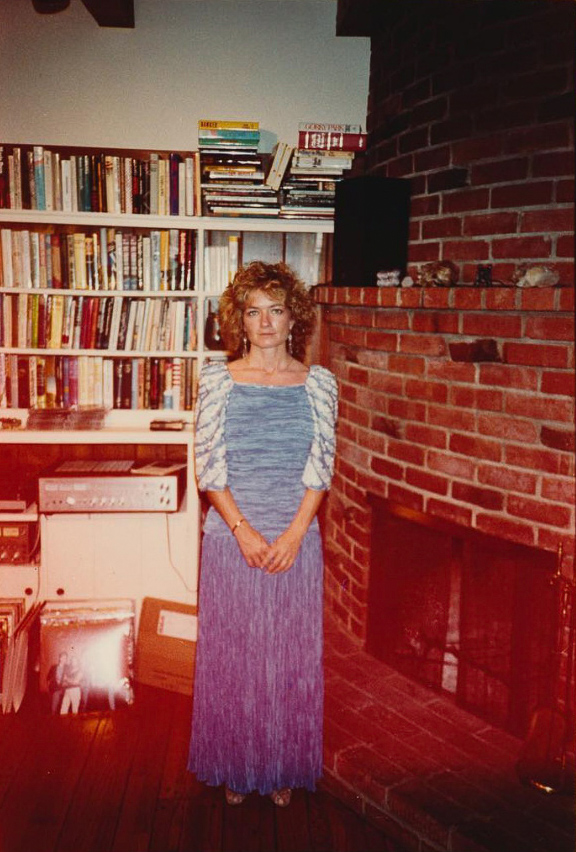
March 9, 1985 | New York City
Jill was thrilled about the Oscar nomination for the Academy Award. I am beginning to be excited myself. This week I did interviews with the Washington Post, National Public Radio for “All Things Considered,” and a photo session for color slides for Cosmo.
I was also sent an incredible dress by Mary McFadden because I’m a nominee. Mary Simons arranged it somehow. First, we went to Perry Ellis but nothing was right, and the woman there called McFadden, and we walked over. They had the perfect dress in my size and are hemming it for me. It had a $2,800 price tag on it but the woman said if I want it after I wear it, I could possibly buy it for $800 or less. They’re happy to have a nominee wear a McFadden.
I invited them to the screening at the Time-Life building on Monday, and they said they’ll come.
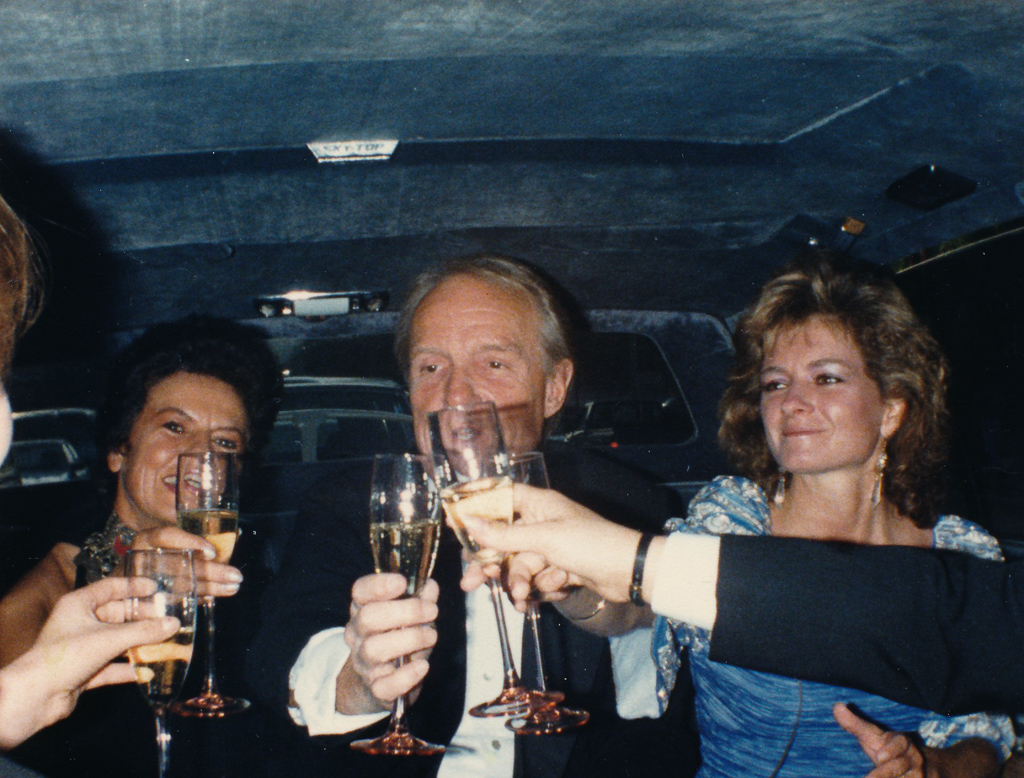
March 26th, 1985 | Los Angeles to New York
Well, the good news is that the Academy Awards are over and the bad news is that Streetwise didn’t win. Harvey Milk did.
In my heart of hearts, I knew our film was best, but I did not expect to win. With total certainty, I sat there last night and knew it before the winner was announced. Of course, I’m disappointed but strangely not for myself. I would have liked to win for all of our friends, the kids in Seattle and the staff at LIFE who were watching. I know they were rooting so hard for Streetwise, but I felt there was so much bad karma involved because of Martin, Mary Ellen, and Saleh that we didn’t deserve to win. By losing, it would save the spectacle of Martin pushing his way up there and Mary Ellen gloating and so forth. Also, Kim and Tiny learned a good lesson—that even adults don’t always get what they want, or deserve.
I must say I looked and felt quite glamorous yesterday in spite of everything. I went backstage for a while to see Willie and Connie who are sympathetic but not devastated at all. Kris was there too. They didn’t come to the restaurant and Stolley, who was my escort, and I didn’t feel like going to the ball after all. I was so sore and tired that it would have been an ordeal. Just sitting through three hours of that award show was an ordeal, especially since the winner in our category was announced in the first 15 minutes.
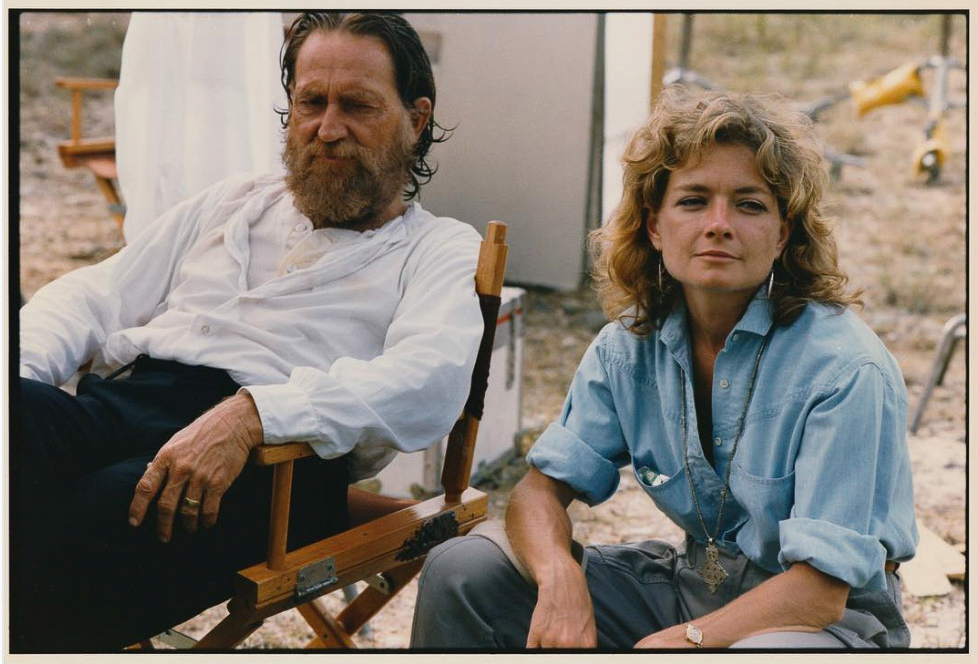
May 5, 1985 | Austin, Texas
I’m leaving here today after spending almost a week on location with Willie for the filming of Red Headed Stranger. I came here burnt out, still in pain from my back, wearing a cervical collar, and exhausted, but I’m leaving in pretty good shape—physically.
The days were long—we usually left the hotel by 7:15 or 7:30 and didn’t return until after 11 p.m.—but not arduous. I spent a lot of time on the bus with Willie, talking, laughing, resting, hanging out with him and a steady stream of buddies, family members, and hangers-on. Michael O’Brien is the Snapper assigned by LIFE and he’s been low-key and easy to get along with. This all happened suddenly.
Last Saturday night after Willie’s concert when he proposed the story to Judy Daniels, LIFE‘s new M.E., she went for it. I had to come down immediately because this was the week Katharine Ross would be on the set and we wanted both female leads in the story. So Monday was a hectic scramble of reservations and taking care of business and I had to get up at 5 a.m. on Tuesday to be here by noon. Anyway, it all went well and will return by May 20th to shoot some more with Morgan Fairchild.
In between then and now, I’m going to Ireland for five days, Detroit for one, Salt Lake City for four—and then back here. I’d like to bring Lulu along because I sure do miss her but that’s too many cities for her to be hopping to and from. Tomorrow morning, Willie and I and two of the kids (Tiny and Kim) will be on Good Morning America (he will be by satellite from Austin) to promote Streetwise. Later in the week, I’ll be on the Today Show to talk about the Ethiopia story in LIFE. A big week ahead.
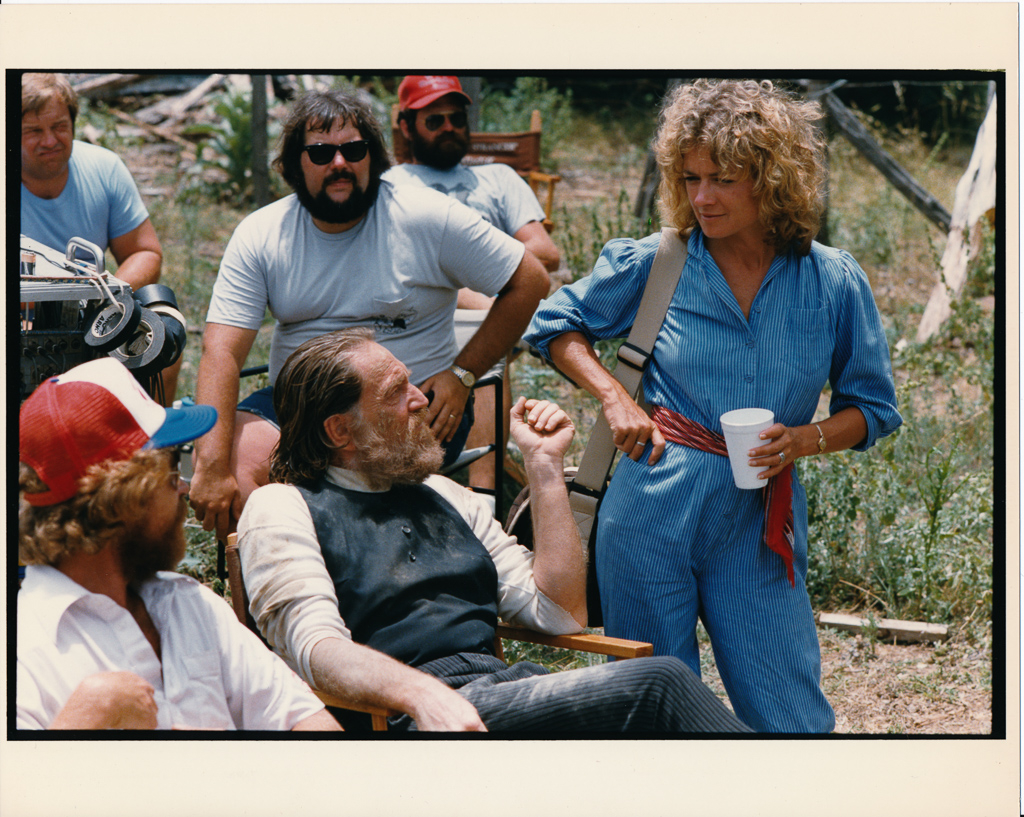
May 15, 1985 | En Route to New York
I frantically cleaned and did loads of laundry last week in the evenings—except for my birthday which I spent with Speed, Luanne, and Edie—to prepare for their arrival. I also did two early morning shows, Good Morning America and Today, and several long radio phones and two print interviews (Boston Phoenix and Children’s Express) in the same week. Somehow I also raised $500,000 for Willie’s movie from a fan who is an acquaintance of Edie’s. At least that was the scenario as I left for Ireland. She was supposed to fly to Austin over the weekend with the check for Willie. I hope it all worked out.
JM (05/08/17): Today would’ve been mom’s 67 birthday. I remember one year she got mad at me because I got her one gift (usually a pair of dark blue earrings I’d pick out from Asylum Down) to cover both her birthday and Mother’s Day. At the time I thought she was being petty—and maybe she was a little bit—but now I understand it was because I was being lazy and thoughtless. Being lazy was never acceptable to her. From punctuation to household chores. After reading a few of these entries, my amazement of her ability to seemingly do it all only continues to grow. One day she’s in Texas, the next she’s on a flight to Dublin, then back on a flight to spend one day in SLC.
I remember one of the few things Willie said to me was that my mom was responsible for the making of Red Headed Stranger. When I saw Edie last May, she told me about mom connecting her friend with Willie and that this same friend went on to help fund Farm Aid. I always admired my mom’s ability to bring people together, and as her daughter, I will forever strive to do the same to honor her. I didn’t do anything to celebrate her birthday today except put on a pair of her lapis earrings and crack the cover of a new journal. Here’s to you mom, you continue to be one of my biggest teachers. Your body may be gone, but your spirit was too bold a flame ever to burn out.
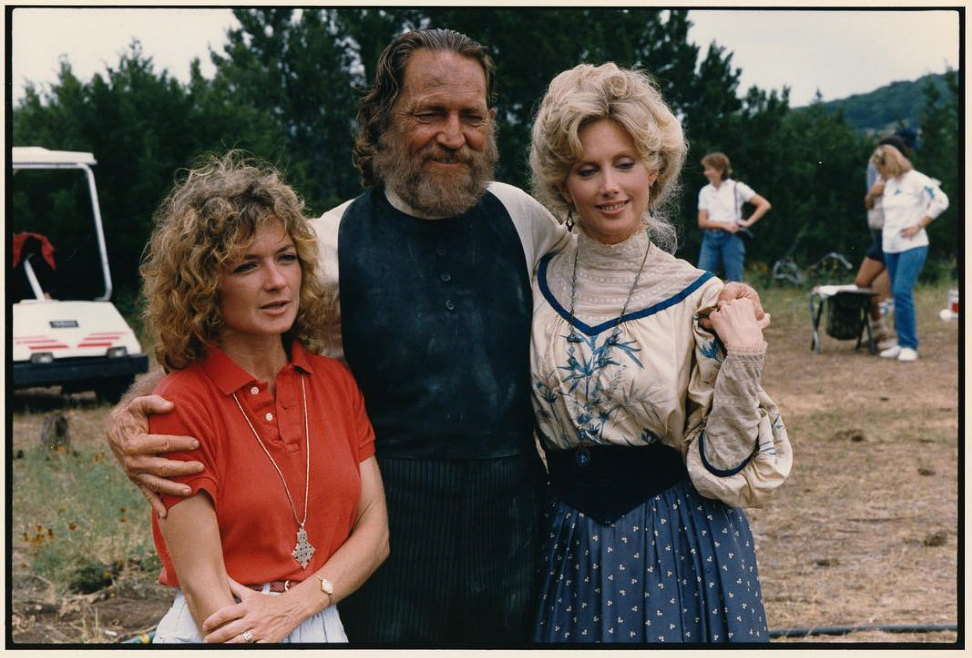
On the Set of Red Headed Stranger
Editor’s Note: Cheryl poses on the set of Red Headed Stranger with Willie Nelson and actress, Morgan Fairchild.
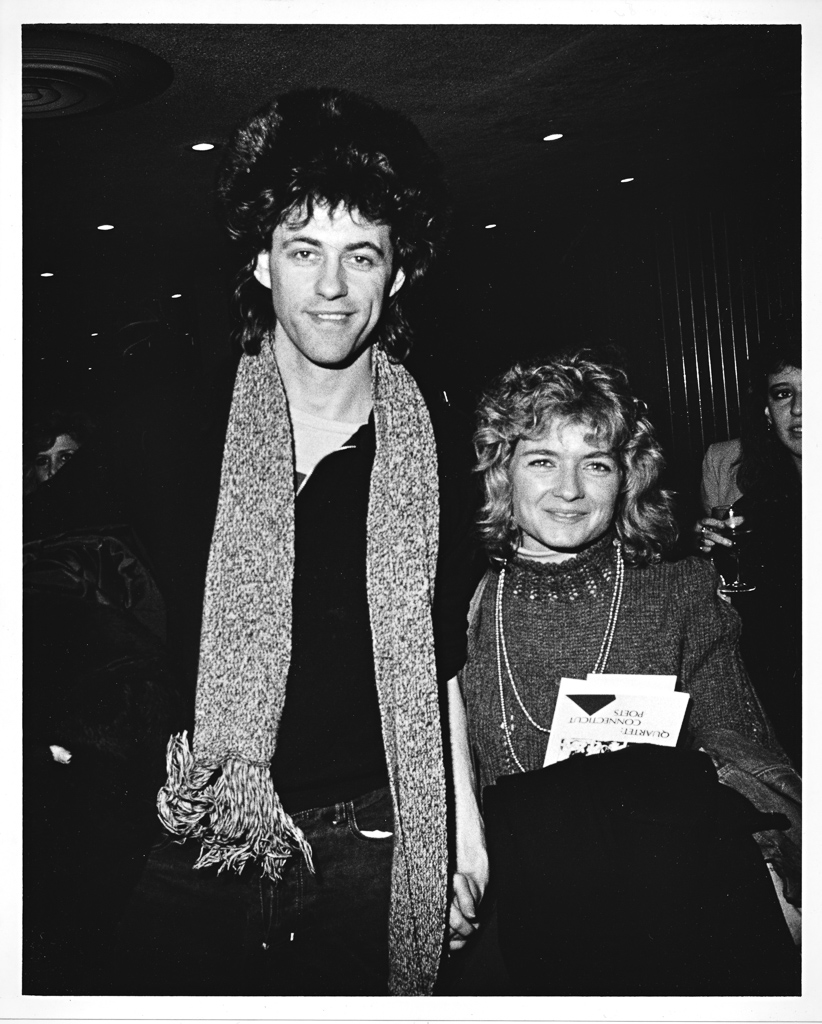
August 29, 1985 | En Route to San Francisco
The story on Bob Geldof I was doing in London turned out extremely well. I hung out with him at his home and the Band Aid office (a big drafty bus depot) for two days and then flew back to New York with him and taped over 4 hours of interview. He needed a place to stay, and I offered him my guest room, so we ended up as roommates for three more days. We get along very well and seem able to talk about everything. There was a funny coincidence that week, Willie called me about 2:30 a.m., waking me up to talk about Farm Aid and asking for advice and help. I told him Geldof was staying with me and got Bob up to get on the phone. Lots of advice was given, but Willie seemed pretty stoned to me, and I don’t know if he took it all in.




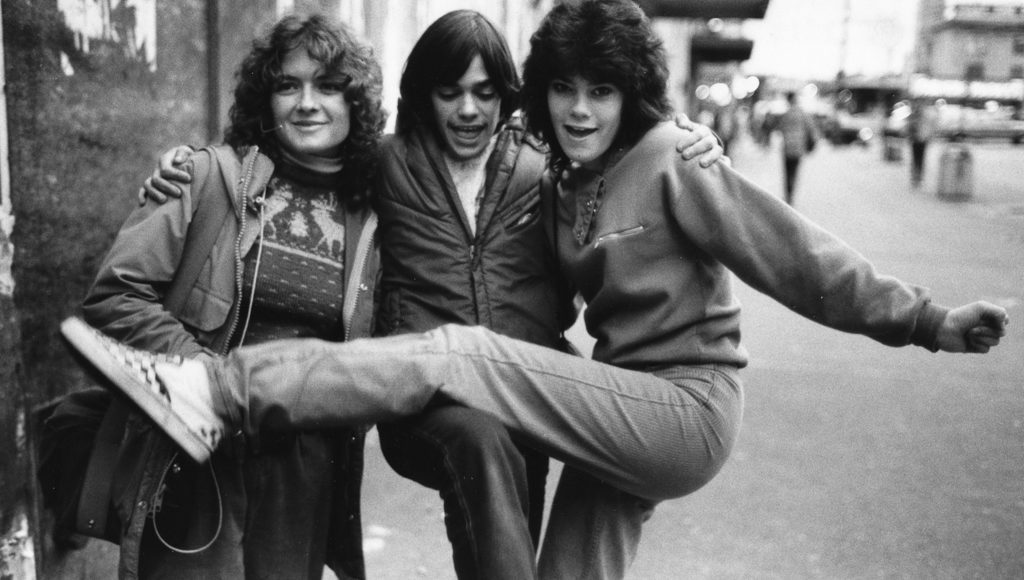
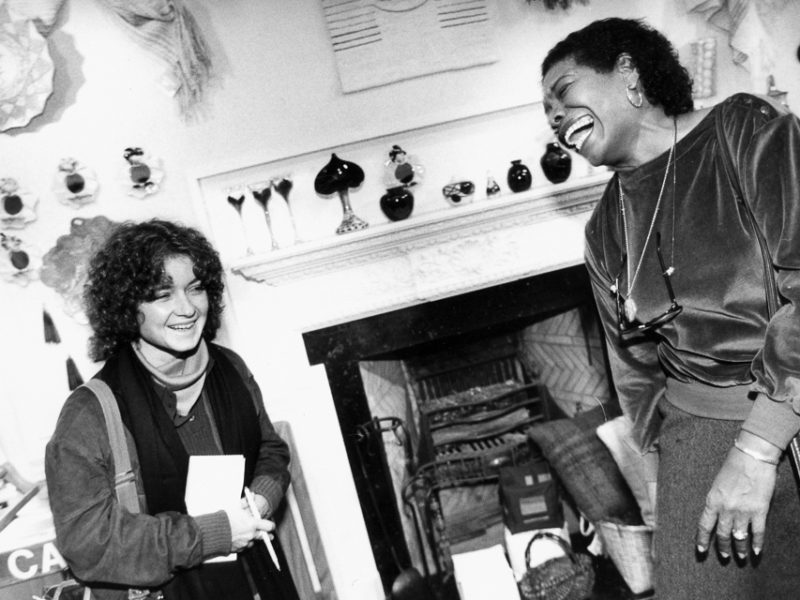
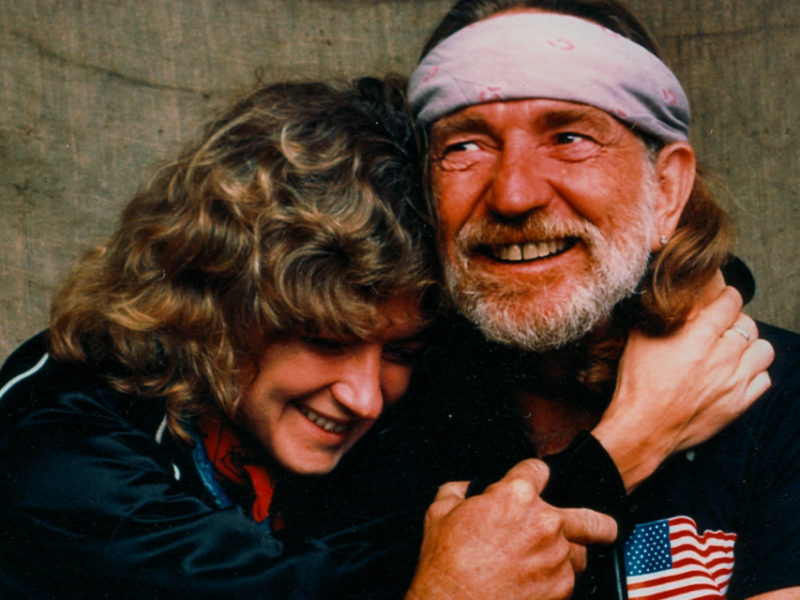
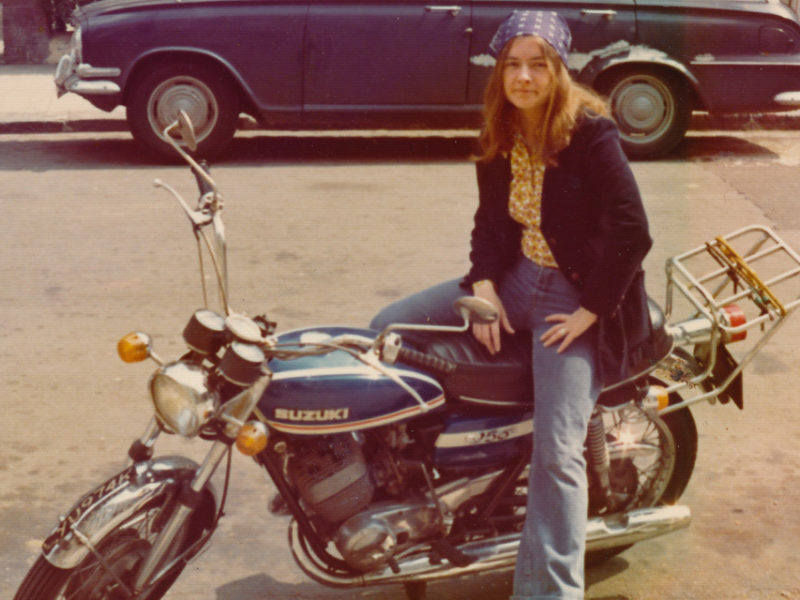
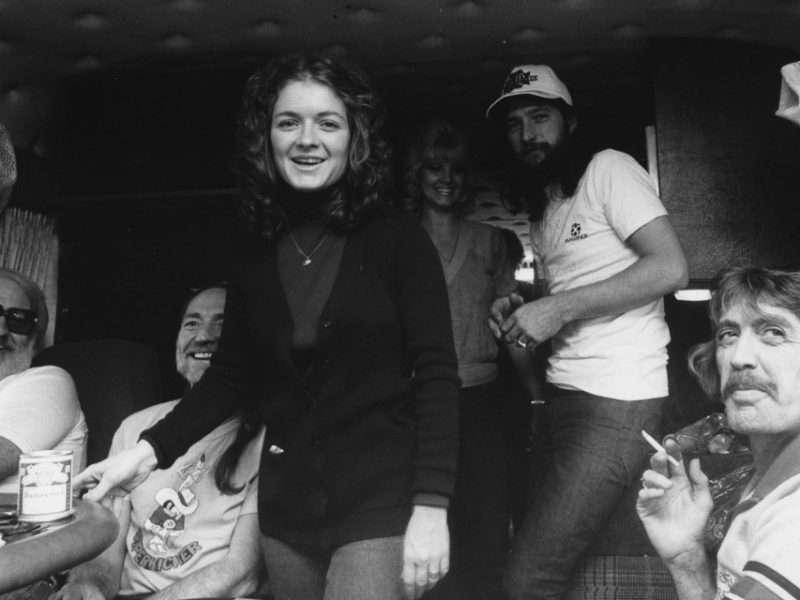
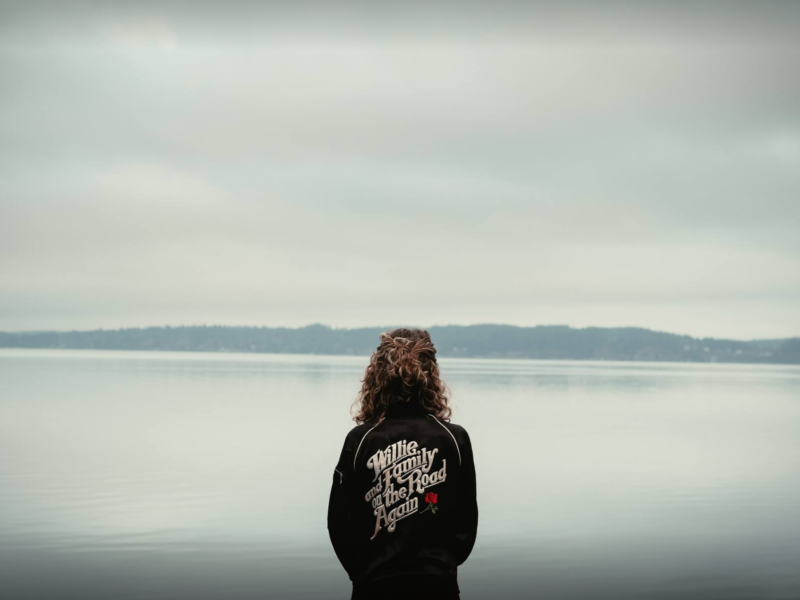

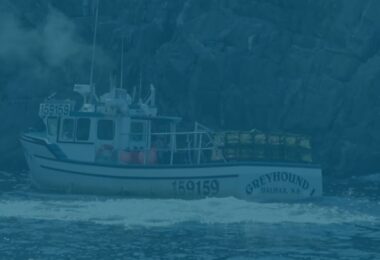
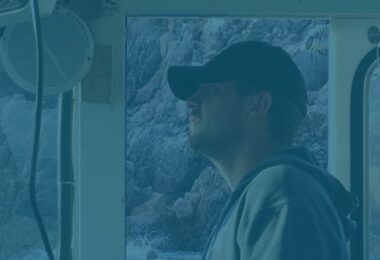
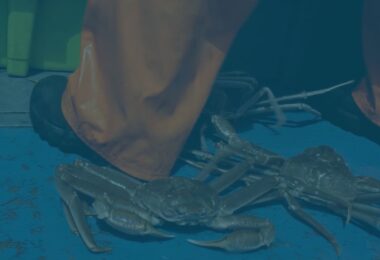

No comments